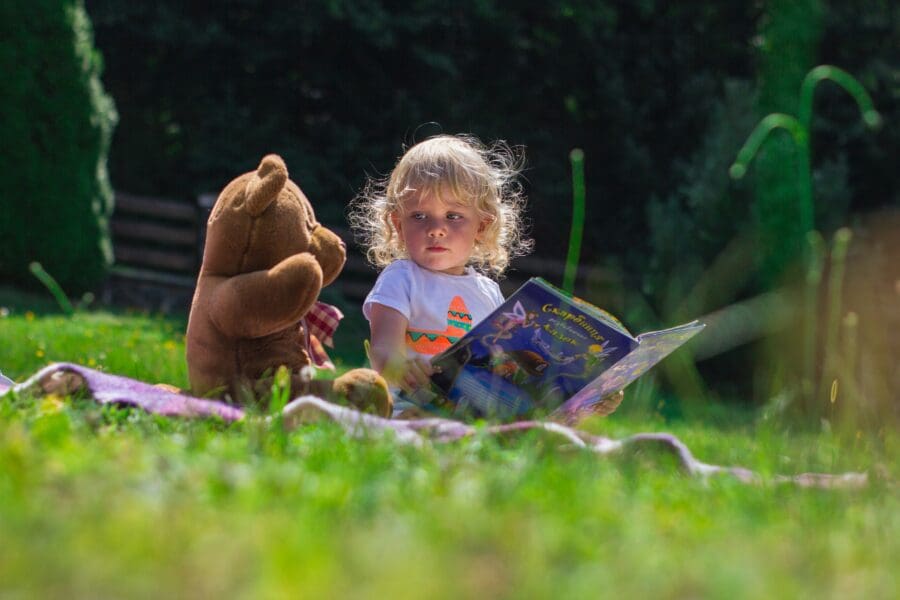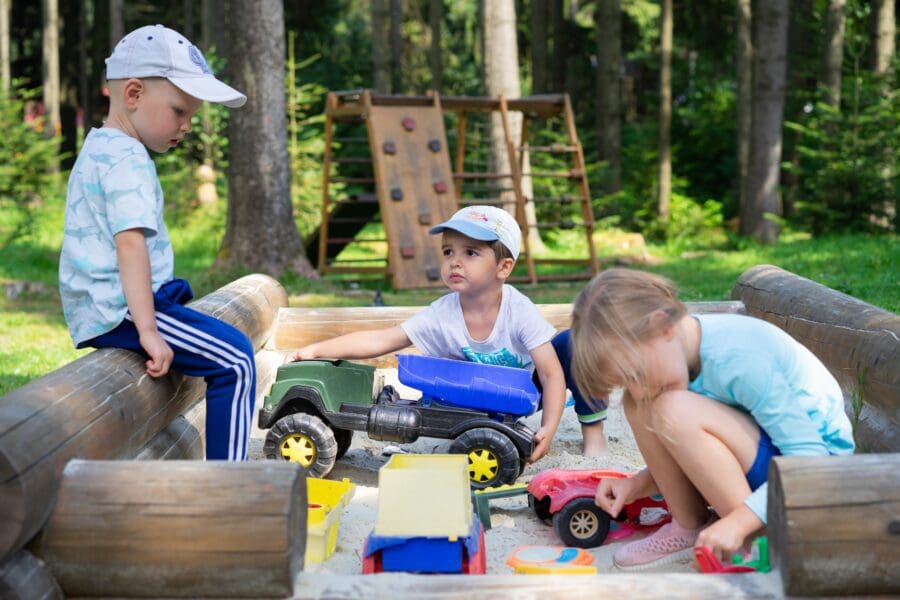
Let the sun shine! The benefits of morning sun for a healthy life
Sunlight, specifically morning sunlight has incredible benefits for children – especially in the sleep space! At its core, sunlight regulates human physiology and behaviour and keeps approximately 100 bodily functions in concert with each other.
“When sunlight enters the eyes, the entire brain lights up’ says Dr Jacob Liberman, a pioneer in the field of light, and the author of four books. ‘It is the guide for trillions of our body’s cells through a process called photobiomodulation – the use of light as a way for the body to repair itself, to reduce the pain, reduce the inflammation and heal”.
As humans, we often spend the majority of our waking hours inside. Yet indoor light (measuring roughly 500 lux – a unit for measuring light) is really only designed for sight. It does not contain the full spectrum of light that the sun provides (a sunny day measures at 100,000 lux).
Spending 30 minutes of time in the sun before noon can have significant and lifelong benefits for both children and adults alike.
So, what are these benefits of morning sunlight? Here are just 4:

Morning sunlight encourages those night-time zzzzz’s
Morning light enters the eye and transmits time-of-day information to the brain and the body. It effectively sends a ‘wakeup’ call to our brain’s pituitary gland (which influence nearly every part of your body). This gland responds almost immediately by producing and releasing cortisol and serotonin while the rest of your body suppresses melatonin production.
Eventually across a day, the pineal gland metabolizes that serotonin into melatonin as the day progresses and that’s what helps our bodies wind down and naturally fall asleep at night.
By exposing ourselves, and especially children to morning sunlight, we kick start that cycle, leading to our inner body clocks and circadian rhythm working in sync with the natural 24-hour-day. We provide our bodies with the raw material it needs to make melatonin when the day starts winding down, so when bedtime rolls around, children’s bodies are ready and primed for sleep.
Now who doesn’t want to encourage good restorative nighttime sleep in their little one?
Morning sunlight boosts those feelgood hormones
Recently, researchers at the National Institute for Mental Health (NIMH) found that light affects the brain areas that regulate mood. As we mentioned above, the morning sun activates the production of serotonin in your body by triggering certain areas in your retina.
The serotonin hormone is associated with boosting your mood and helping you feel calm and focused. There is ample research to suggest that serotonin plays an active role in the treatment of depression as well. Its effects can be so significant, that researchers at BYU found that the availability of sunshine has more impact on mood than rainfall, temperature, or any other environmental factor.
So, it seems a sunny disposition is a real thing!

Morning sunlight boosts your health
As humans, we’re diurnal creatures – which means our bodily rhythms revolve around the patterns of the sun and moon and their cycles.
Light is the most important synchronising agent for the brain and the body. “Proper synchronisation of internal biological rhythms with the earth’s daily rotation has been shown to be essential for health.” says Ivy Cheung Mason, Harvard Neuroscience Research Fellow.
Sunlight has also been shown to increase the production of white blood cells in the body, helping to fight infection and keep children overall generally healthy. As children grow and explore, they’re exposed to all kinds of viruses and bacteria – so exposing them to sunlight (safely) can help ensure their bodies are better able to handle anything that comes their way.
It can even drastically improve heart health. When sunlight hits your skin, your body releases nitric oxide into your blood, which has been seen to bring down blood pressure.
Sunlight helps with the production of Vitamin D
Incredibly, around 90% of the body’s Vitamin D is produced by the body when sunlight hits the skin.
Vitamin D plays such an important role in children’s growing bodies. It helps them absorb calcium, (essential for the healthy development of teeth and bones), and other minerals like zinc and magnesium. It can also help to moderate cell growth, boost immune system functioning and reduce inflammation – phew that’s a lot!
Why is that so important? According to Dr Jacob Liberman OD, Ph.D “every disease of modern times: cancer, heart disease, diabetes, obesity, Alzheimer’s and so on are all related to Vitamin D deficiency because we are spending our days indoors”
“Cells have an engine, called the mitochondria, and that engine gets its fuel from light. When sunlight interacts with the skin, a portion of its rays trigger a reaction in the cells and jumpstarts the engine. Light triggers the mitochondria to produce the energy the mitochondria need to heal us, to regenerate the tissue continually so that old cells are shed, and new strong cells develop” he continues.
Recent research has even shown that maintaining adequate levels of Vitamin D may have a protective effect and lower the risk of developing multiple sclerosis in later years.
- Head outdoors for a walk first thing in the morning – this is especially helpful in Summer when the temperatures can soar
- Eat breakfast outside – it’s also easier to clean up!
- Bring your teddies outside and have a Teddy Bear Picnic
- Install an outdoor or mud kitchen in your front or back yard
- Enjoy a morning yoga session outside, simply bring a mat and enjoy the sounds of nature
- Become a bird watcher
- Jump in the pool, ocean or river for an early morning splash
- Treasure hunts are a great way to get outside and explore your local community
Written By
Jenny joined the Sustainable Play Preschool team in 2021 with a Bachelor of Arts, Communications and a Bachelor of Business from Charles Sturt University.
Whilst always interested in the power of nature, it was with the birth of her own daughter that she gained a greater appreciation for just how precious (and fleeting) childhood is, and the importance of providing children with a nature centric early learning experience.


